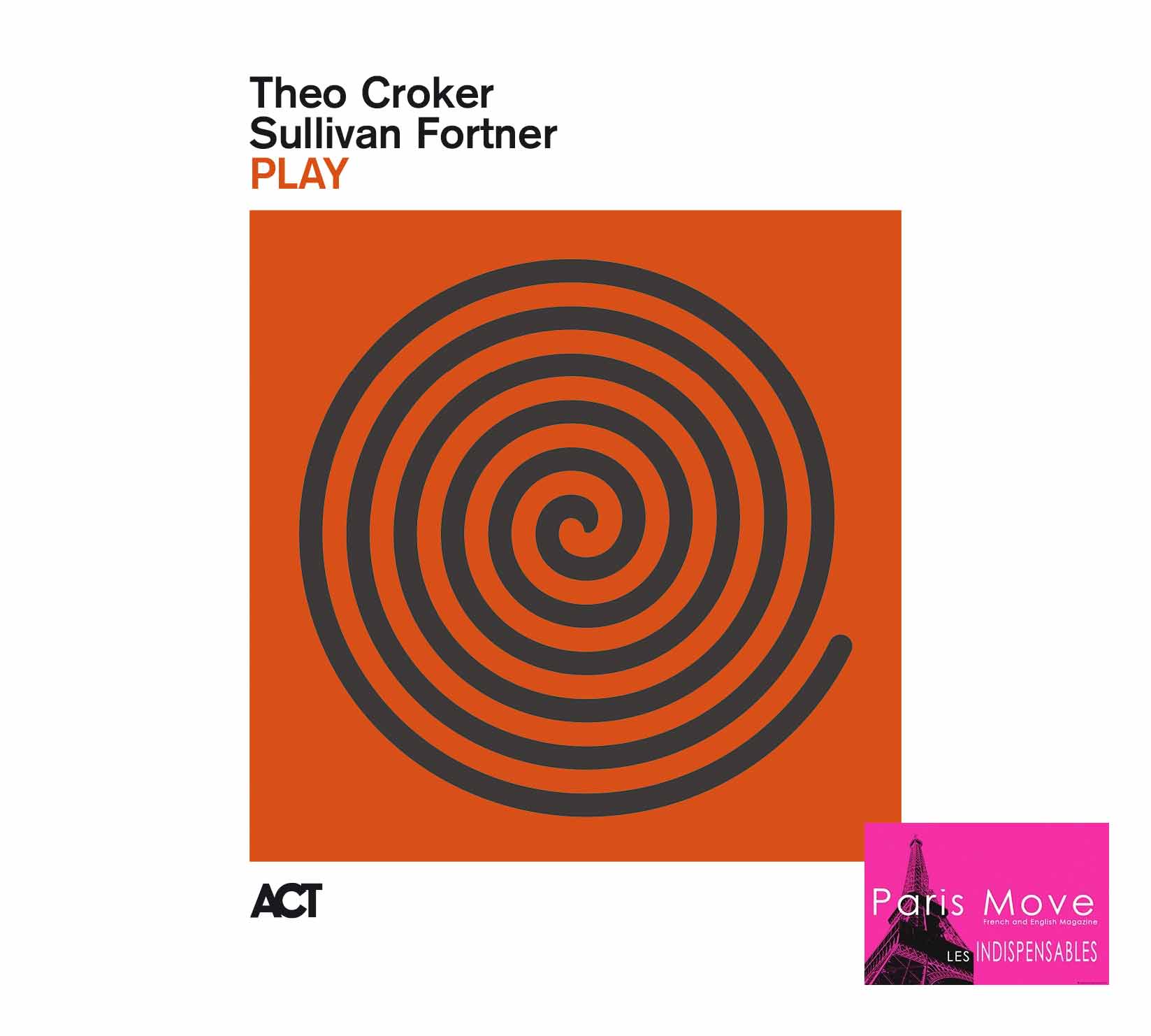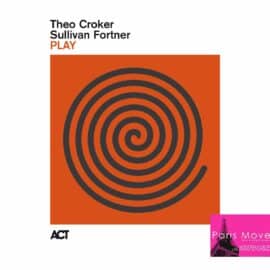| Jazz |

The Art of Dialogue: Theo Croker and Sullivan Fortner’s Journey Toward Musical Freedom
There are moments in jazz when two voices meet and the air itself seems to change. The notes no longer sound like melodies but like the unfolding of a conversation, measured, intimate, and radiant with mutual understanding. When trumpeter Theo Croker and pianist Sullivan Fortner join forces, they create precisely that kind of alchemy: an encounter of two kindred spirits whose shared history and artistic depth transform improvisation into revelation.
What emerges is not simply an album, but a dialogue. One rooted in twenty years of friendship, in the discipline of classical study, and in the restless desire to push jazz beyond its own borders. Their collaboration feels like a meeting of two cultures, two philosophies of sound, merged with elegance, intellect, and an unwavering respect for the tradition they continue to reinvent.
A Friendship Forged in Sound
The friendship between Croker and Fortner stretches back nearly two decades, years marked by jam sessions, gigs, tours, and the kind of slow-growing artistic trust that can’t be forced. Both musicians have carved distinct reputations: Croker, the visionary trumpeter and composer known for blending post-bop lyricism with Afrofuturist experimentation; and Fortner, the New Orleans–born pianist whose technical precision and harmonic imagination have made him one of the most respected accompanists and soloists of his generation.
Their shared history gives their new project its rare chemistry. There’s a familiarity between them, a shorthand in phrasing and rhythm, that allows their dialogue to flow with an almost telepathic ease. As they play, one finishes the other’s musical sentences.
“We’ve known each other for so long,” Croker says, “that it doesn’t feel like collaboration anymore, it feels like communication.”
That communication, however, wasn’t immediate.
The Abandoned Session
Croker recalls how their initial idea took shape, and quickly dissolved: “When we first played it,” he remembers, “it just felt flat. Not because the tunes weren’t good, but because the project started out too safe. The plan was to record a set of modern jazz standards, maybe reinterpret a few popular songs. We went into the studio, made the record, and then shelved it. Completely. It just felt like we were repeating what others had already done.”
Fortner agrees: “It didn’t feel like us,” he says. “It felt more like being back in school. We’d both played the Great American Songbook over and over. Those are beautiful songs, and they taught us how to play—but that’s not necessarily the music we wanted to perform anymore. What we do now goes beyond jazz as a category. The music we make reflects the entire spectrum of Black American sound—the church, the blues, the avant-garde, the street—all of it, not just one genre.”
It was an artistic impasse. Yet in hindsight, it was necessary. Some ideas, as both artists discovered, need time to breathe before they can become themselves.
Letting Time Do Its Work
In jazz, as in life, the best ideas often ripen in silence. “Sometimes,” Croker says, “you just have to let time take care of things. You step away, and suddenly what felt forced yesterday becomes natural today.”
Their eventual return to the project was like that, a quiet revelation. No pressure, no preconceptions. Just two musicians rediscovering the joy of play.
“We started small,” Croker continues. “For one tune, we decided to play it fast. For another, we picked four notes we wouldn’t play. On another, I played long tones while Sullivan played short, rapid ones. Sometimes I’d come up with a melody and we’d see where it went. Within an hour, we were done. That’s how it happened.”
The process was almost improvisational in its conception, a series of experiments designed not to achieve perfection but to capture truth.
“It just felt right,” Fortner says. “It was like hearing ourselves again for the first time.”
Behind that simplicity lies something profound: two lifetimes of discipline and curiosity distilled into a single, instinctive flow.
Beyond the Industry’s Noise
What makes this collaboration striking is not only its sound but its intent. In an era when much of the music industry caters to instant gratification and algorithmic predictability, Croker and Fortner’s project feels radical simply because it refuses to compromise. It’s music made for thinking, for listening, for feeling, crafted not for markets but for meaning.
The result recalls the audacity of 1960s avant-garde jazz, yet it’s unmistakably modern. You can hear echoes of classical training, the pulse of New Orleans rhythm, the serenity of spiritual jazz. But more than that, you hear two artists liberated from expectation, creating because creation itself remains the most honest act of resistance.
Their music becomes a meditation on freedom: freedom from genre, from hierarchy, from the need to explain oneself.
“It’s not about proving anything,” Croker reflects. “It’s about remembering why we play—to connect, to listen, to reflect something bigger than ourselves.”
A Moment of Flight
Listening to Croker and Fortner, one senses that the essence of jazz still resides in conversation—in the courage to speak, to respond, to disagree, to harmonize. Their music moves like a pair of birds in flight: crossing paths, diverging, circling, and finding each other again.
In that movement lies the truth of their art: it is alive. It breathes. It changes shape with every gesture. Each note seems to question the world and then, somehow, to heal it.
For the listener, it’s a reminder of what music can still do in a time of noise and distraction, it can make us pay attention again.
Reflection: The Courage to Be Free
As the last notes fade, one is left with the impression not of completion but of continuity. Croker and Fortner’s dialogue doesn’t end when the album stops; it continues in the silence that follows, in the thoughts it stirs, in the way it reawakens the listener’s own sense of curiosity.
Their collaboration is a work of inspiration, for those who demand substance, for those who remember that jazz was never meant to be a formula but a conversation. It recalls the thrill of discovering an unfamiliar score as a teenager, the moment when mystery becomes beauty, when intellect and emotion collide.
Theo Croker and Sullivan Fortner remind us that true artistry requires risk. They offer not entertainment, but engagement. Not escape, but reflection.
In a world increasingly confined by convention, their dialogue opens a window, wide and luminous, onto what freedom can sound like.
Thierry De Clemensat
Member at Jazz Journalists Association
USA correspondent for Paris-Move and ABS magazine
Editor in chief – Bayou Blue Radio, Bayou Blue News
PARIS-MOVE, October 15th 2025
Follow PARIS-MOVE on X
::::::::::::::::::::::::
Musicians :
Theo Croker trumpet
Sullivan Fortner piano
Track Listing :
01 A Prayer for Peace 02:54
02 First Light 03:02
03 We Laugh Because We Must 02:01
04 Midnight Bloom 01:24
05 The Space Within 02:05
06 Let the Quiet Speak 01:57
07 Open Palms 03:43
08 Light Remains 05:53
09 Beneath the Noise 03:18
10 Mouth Full of Sky 03:25
11 Grace Is Not Gentle 01:55
12 As We Are 05:10
13 Then We Danced 03:47
14 Here and Now 02:50
#1 composed by Theo Croker, all other tracks are improvisations
Recorded June 6, 2023 at The Bunker Studio, Brooklyn, NY
Recorded by Todd Carter
Mixed by Todd Carder
Mastered by Klaus Scheuermann
Produced by Theo Croker & Sullivan Fortner
Photo by @ogata_photo
Cover design by Siggi Loch
Spiral motif used under license from Giorgio Morara Alamy (vector graphic)

